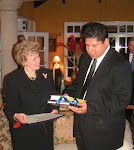While Americans are shellshocked by the burgeoning deficits and the actions of this administration to run our banks, car manufactures, health care, and ultimately our lives, our ability to defend the U.S. is being decimated.
Defense: They Build While We Cut
by Rowan Scarborough
Human Events 08/13/2009
Russia and China, two potential U.S. adversaries in a future war, are committed to big increases in defense spending and global military adventures in the coming years, just as President Obama is forcing the Pentagon to scale back.
The imbalance has defense experts worried that re-emergent Russia and China will be able to defeat U.S. forces in an air, sea and ground conflict because they will field superior fighters, ships and tanks in the next decades.
This week, China announced its most ambitious military exercise to date. The People's Liberation Army is sending 50,000 troops to far reaches of the country to fight land battles against theoretic foes.
"In the unprecedented exercise, one of the PLA's major objectives will be to improve its capacity of long-range projection," the state-run Xinhua News Agency said.
Most troubling to pro-defense conservatives is the president's decision to terminate production of its most futuristic air superiority fighter, the F-22 Raptor, and retired in one year 200 other warplanes. Obama has also scaled back missile defense, a long-range bomber and Army ground vehicles.
His projected five-year defense spending, beginning in 2010, will not keep pace with inflation, meaning Pentagon eye-shaders will be forced to inflict more cuts in the 2011 budget and beyond.
"Shorting future defense programs, like missile defense, is a real mistake from a strategic standpoint," Larry Wortzel, a defense analyst and former military attache in Beijing, told Human Events. "Your have to worry about future relationships with China. You don't know what will happen with North Korea."
Wortzel said that in 2004 the Chinese communist party's central military commission decreed it "must develop the capability to protect China's global strategic interest. They need a more active navy so that they can project sea lanes all the way out to the Persian Gulf. There are theoretical writings inside the People's Liberation Army about long-range strike aircraft. They are thinking about becoming a more globally active military in the future and we don't know what our future relations will be."
It is not just conservatives sounding the alarm.
Michael O'Hanlon, a liberal defense analyst at the Brookings Institution, wrote in the Washington Post that Obama is providing the military with "no real growth" over the next five years.
"The administration is right to propose increasing resources for the State Department and aid programs," he wrote. "But it is unwise politics and unwise strategy to put these key elements of foreign policy in direct competition with each other, as appears to be the case in the new budget."
Although not a direct attack on Obama's defense budget, the Rand Corp. this month released a study that warned of China's growing might. The U.S. may well lose an air war with China over control of Taiwan because of Beijing's massive arms buildup.
"Chinese military capabilities have advanced rapidly over the past decade," said Rand. "China has deployed or is deploying modern fighter aircraft, such as the Su-27/J-11, Su-30, and J-10, in sizable numbers."
It added, "Our analysis of the air war indicates that China’s growing military power has changed the nature of the fight for air superiority."
The Air Force fighter community, which opposes Obama's decision to cap the F-22 at 187 planes, fears it will not have sufficient fighters to cover hotspots in Asia and the Middle East.
Said Wortzel, "We need to keep ahead of China significantly to be comfortable in terms of our air capacity."
In addition, the report said, China has stationed so many short-range ballistic missiles on its coast (over 1,000, the Pentagon says) it could unleash a barrage that would destroy every military runway in Taiwan, knocking its air force out of the war. China could also hit two U.S. Air Force bases in Japan.
"The United States is unlikely to be able to compensate for the hundreds of [Taiwanese] fighters burning on their parking ramps, trapped behind cratered runways, or hiding in underground shelters," Rand said. "The danger to both ROCAF and USAF operations in the Taiwan Strait is sufficiently grave that a credible case can be made that the air war for Taiwan could essentially be over before much of the Blue air forces have even fired a shot.
Titled "A Question of Balance: Political Context and Military Aspects of the China-Taiwan Dispute," the Rand report could be held up as a counter to Defense Secretary Robert Gates. He often complains of his generals having "next-war-itis" funding futuristic system for possible wars instead of focusing on the one they are fighting now.
But if the Air Force does not own sufficient tactical aircraft to fend off a Chinese invasion of Taiwan, then curing the top brass of one "itis" means you may lose the patient in this case democratic ally Taiwan.
Wortzel said it is not just Taiwan control that could ignite a fight with China.
"The next conflict with China could be over how you stabilize North Korea," he said. "It could be over some mistake over the way they defend their territorial claims in the South China Sea. There's still volatility in the western Pacific even without Taiwan."
Meanwhile, Russia's new prime minister, Dmitriy Medvedev, announced in March a "comprehensive rearmament" of his military.
Russia already has tested Washington. It invaded the republic of Georgia, flies long-range bombers near Alaskan air space and is again positioning nuclear-armed attack submarines off the U.S. coast.
The Defense Intelligence Agency has briefed Congress on both Russia's and China's major military expansions.
Lt. Gen. Michael Maples, until recently the DIA director, said China is improving its F-10 air-to-air fighter, and buying sophisticated surface-to-air and anti-ship missiles.
"The People’s Liberation Army (PLA) is increasingly building its own sophisticated aircraft, surface combatants, submarines and weapon systems while still purchasing select systems from overseas," the general said. "China is looking beyond a potential Taiwan contingency and is pursuing capabilities needed to become a major regional power. The navy already operates a large surface fleet, an increasingly modern submarine fleet, and increasingly appears likely to pursue an aircraft carrier development program. The air force is developing an extended-range, land-attack cruise-missile-capable bomber."
If that is not troubling enough, China is working to make its nuclear ICBM force more survivable meaning it is gaming how to win an all-out war with the United States.
China's defense budget has grown to nearly $200 billion. While it may be less than half the U.S.'s, Beijing's cost for some items, particular personnel, is much less than the Pentagon's. It is focusing on dominating one theater southeast Asia while Washington must budget money to defend multiple regions.
The DIA says Russia has committed $200 billion in 2007-2015 to build new conventional and nuclear weapons. It continues to export advanced arms to U.S. adversaries Syria, Iran and Venezuela, creating more headaches for a stretched U.S. military.
"Perceived Western encroachment into its claimed areas of interest and Islamic or insurgent threats along its periphery are driving Russia’s current military activities and modernization efforts," Maples said.
--------------------------------------------------------------------------------
Mr. Scarborough is a national security writer who has written books on Donald Rumsfeld and the CIA, including the New York Times bestseller Rumsfeld's War.
Subscribe to:
Post Comments (Atom)

Meeting with Uighur leader Rebiya Kadeer
Visiting Iraqi refugees at Jordanian girls' school.







+-+Copy.jpg)


No comments:
Post a Comment